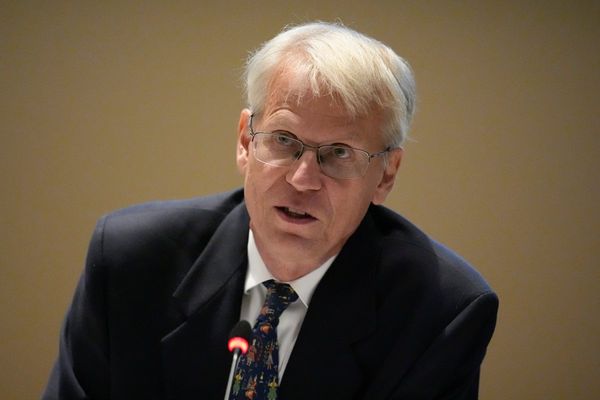
After last year’s event was overshadowed by the controversy surrounding Noel Clarke, the British Academy of Film and Television Arts (Bafta) are hoping that it can regain credibility with its 2022 edition, for which the nominations have been announced. Science-fiction blockbuster Dune leads the way with 11 nominations, while the Jane Campion-directed western The Power of the Dog follows with eight, and Kenneth Branagh’s autobiographical drama Belfast has six.
In 2021, Clarke had been given Bafta’s outstanding contribution to British cinema award, but shortly afterwards the Guardian revealed 20 women had made allegations of harassment and bullying against him, and the award was suspended. (Clarke denies sexual misconduct.) Bafta subsequently announced that it would not hand out honorary awards until after a review had been conducted.
In a press briefing, Bafta chair Krishnendu Majumdar said the decision to review the decision-making process behind its honorary award had been taken before the Clarke scandal, while Bafta deputy chair Sara Putt added: “We wanted to make the process more rigorous … It’s about people we should know, rather than people we do know.”
The Clarke scandal also overshadowed the progress Bafta appeared to make over the diversity of its award nominees, after a series of rule changes in response to years of complaints. In 2021, four women were nominated for best director and the majority of acting nominees were non-white. This year, the numbers are not quite so spectacular, but three women – Jane Campion, Julia Ducournau and Audrey Diwan – are up for best director, out of six nominees, while seven of the 18 acting nominations are people of colour, including Will Smith, for best actor for King Richard, and Tessa Thompson for best actress for Passing. Putt said Bafta was “very excited” about the diversity of its nominees, while Majumdar said: “We’re delighted to be able to shine a spotlight on such a phenomenal breadth of stories and performances.”
Majumdar also drew attention to the achievement of British independent film After Love, the directorial debut of film-maker Aleem Khan, which scored four nominations: for outstanding British film, best actress for Joanna Scanlan, and outstanding debut and best director for Khan.
Mainstream cinema is well represented, with most nominations going to the epic Dune adaptation, directed by Denis Villeneuve. It scored heavily in the behind-the-camera categories, including nominations for best special visual effects and best cinematography, as well as best film and best original screenplay for Villeneuve. The recent James Bond film No Time to Die also did well, with five nominations including outstanding British film and best special visual effects, as did Steven Spielberg’s remake of West Side Story, including best supporting actress and actor for Ariana DeBose and Mike Faist.
However, the current awards-season powerhouses The Power of the Dog and Belfast, which are expected to dominate the major prizes at both the Baftas and the Oscars, feature heavily in the headline awards: both are up for best film, while several principal cast members – Benedict Cumberbatch, Kodi Smit-McPhee and Jesse Plemons for the former, and Caitríona Balfe and Ciarán Hinds for the latter – all have acting nods.
One surprise omission from the lineup is the Princess Diana biopic Spencer, starring Kristen Stewart, which was expected to do well after its successful launch at the Venice film festival last year. However, it failed to secure a single nomination, including Stewart for best actress, which may have saved Bafta president Prince William from an awkward encounter. Olivia Colman, a Bafta best actress winner in 2019 for The Favourite, was passed over this year for her lead role in the Elena Ferrante adaptation The Lost Daughter, for which she is currently considered an Oscar front-runner. Also completely omitted is The Souvenir Part II, which, like predecessor The Souvenir from director Joanna Hogg, received no nominations.
The Black Cop, directed by Cherish Oteka and commissioned by Guardian Documentaries, is nominated for best British short film. Following the Oscar win for the Guardian’s documentary Colette, this is the first time a Guardian film has been nominated for a Bafta. The Guardian’s editor-in-chief Katharine Viner said: “The nomination is a real honour and a testament to the talented team behind this powerful film.” Oteka said: “It has been heartwarming to see The Black Cop connecting with audiences.”
Bafta has already announced the line-up for its Rising Star award, voted on by the public, which includes Bond actor Lashana Lynch and Smit-McPhee.
The winners will be announced at a ceremony at the Royal Albert Hall, London, on 13 March, with Rebel Wilson acting as host. After the virtual event conducted under social distancing conditions in 2021, Bafta say they are planning an in-person ceremony, with a “full” audience, while conforming to government guidelines.







